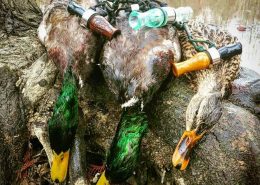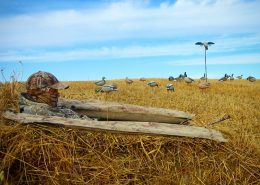Calling Waterfowl in All Weather
Waterfowlers love to be miserable. The nastier the weather, the farther we have to hike, the more decoys we have to haul on our backs, the more we enjoy the hunt. Weather is especially endearing to waterfowlers, as it just seems the ducks and geese get some type of enjoyment from seeing us soaking wet and shivering, with ice crystals hanging off of the dog’s muzzle.

Does the Weather Affect the Sound of Calls?
With ducks and geese seeming to fly better in inclement weather, how should waterfowlers adjust their calling? Does howling wind mean we need to blow our calls louder? What about bluebird days, with no clouds in the sky? Should we call differently when it’s extremely cold as opposed to those early-season teal hunts, where we’re covered in mosquitoes and sweat?
For now, let’s leave the study of how ducks and geese act differently in different kinds of weather alone, and just focus on the calling. We’re creating sounds, and different weather conditions can affect sound measurably. So, if we study how sound waves move through the air, then learn how wind, rain, clouds, etc affect sound, we can make small adjustments to our calling methods to give ducks and geese the best opportunity to hear a realistic sound.





